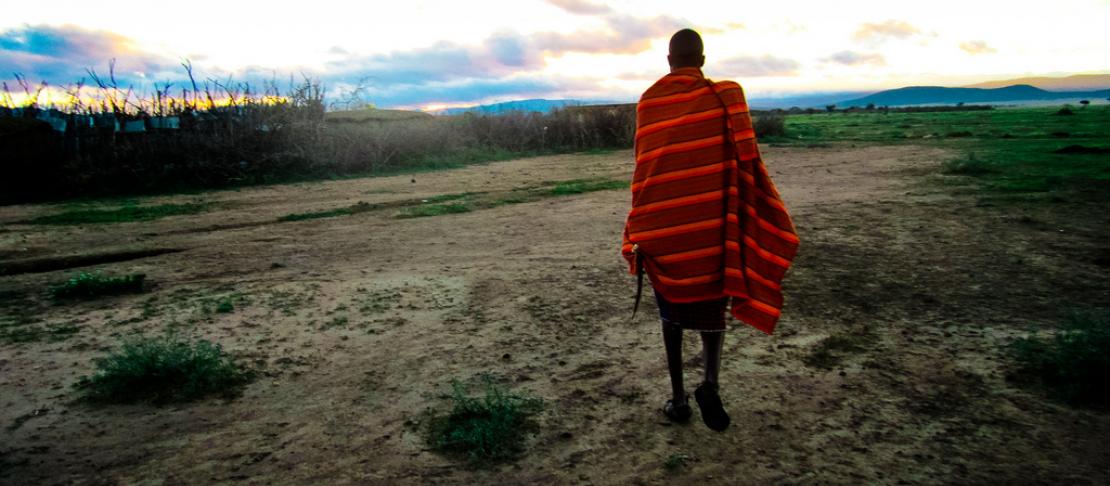Maasai voices on climate change (and other changes, too)

Maasai pastoralists in East Africa are using video to share their stories and experiences about coping with seasonal and annual climatic variability. As climatic changes intensify in the region, their livestock-dependent livelihoods are ever more vulnerable to increasingly frequent droughts and other extreme events.
The film Maasai Voices on Climate Change (and other changes, too) illustrates how Maasai pastoralists in Eastern Kenya perceive climate change, as well as other socio-economic and environmental changes. It was entirely created by a group of pastoralists (aka the Maasai filmmakers), who directed, shot and edited it in September 2011. The Maasai filmmakers tell multiple stories of environmental changes and coping strategies from their perspective, in their own voice. What the short film shows (and this is also a major finding of the Pastoralist Transformations to Resilient Futures project) is that for local herders, the story is bigger than “just” climate change. Climate change and its effects are acknowledged (for instance, more frequent droughts; increasingly unpredictable weather patterns). But so are sweeping changes such as land privatization and unregulated tourism, which also affect herding and the capacity to cope with climatic changes. Climate change effects both exacerbate and are exacerbated by socioeconomic changes; and local herders feel, recognize and cope with these interconnected transformations.
The fifteen Maasai filmmakers come from Mpuaai, a community in Koyiaki Group Ranch, on the outskirts of the Maasai Mara National Reserve. They are young pastoralist men who also have small businesses and/or jobs in tourism, as well as young women, all mothers. For many of them, receiving video production training was their first formal schooling experience. They learned a skill that they thought was exclusive to tourists.
The Maasai filmmakers are Stanley ole Neboo, Noah Meoli Kaai, Sasine ole Neboo, Noolarami enole Kapirontoi, Kuntayo ole Kirrokor, Debra Seenoi Kaigil, Moses Simel Rarin, Alex K. Koshal, Otumoi ole Keeko, Daniel P. ole Mpatiany, Nickson ole Kirrokor, Benson Molonko ol Kirrokor, Denis Sasine Ole Lenjir, Sabaya ole Mpatiany, Emily Soipanoi enole Kapirontoi and Miton ole Kirrokor. They can be contacted through Stanley ole Neboo at s_neboo(at)yahoo.com.
The film production was facilited by a team of filmmakers sponsored by Colorado State University (Joana Roque de Pinho and Nicolas Tapia), and was produced as part of the project Pastoralist Transformations to Resilient Futures: Understanding Climate from the Ground Up, which aims to explore East African pastoralists’ perceptions of climatic changes and their experiences coping with related challenges The project is funded by the Livestock and Climate Change Collaborative Research Support Programme (CRSP) with support from the CGIAR Research Program on Climate Change, Agriculture and Food Security (CCAFS).
See more films from this project.
Joana Roque de Pinho is a post-doctoral researcher at the Centro de Administração e Políticas Públicas, Instituto Superior de Ciências Sociais e Políticas, Lisbon, Portugal. To get more updates, follow us on Facebook, and Twitter @Cgiarclimate.



